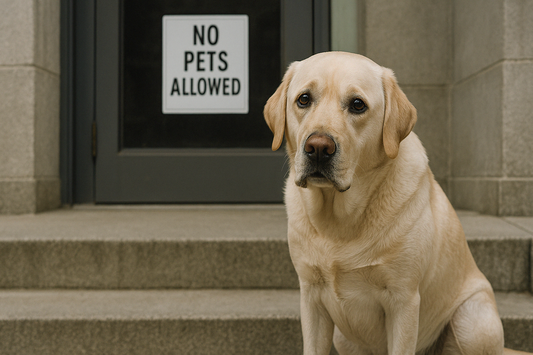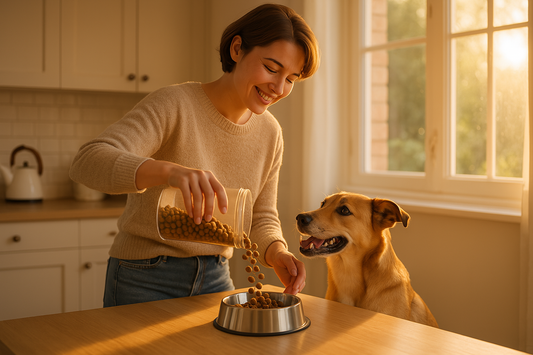In the world of pet ownership, few responsibilities are as critical as providing proper nutrition for your canine companion. Just as humans need a balanced diet to thrive, our four-legged friends also rely on nutritious meals to lead healthy, active lives. In this comprehensive guide, we will explore the art of dog nutrition and delve into the various dietary options available, empowering you to make informed choices that will keep your beloved dog happy and healthy.
The Essence of Dog Nutrition: Before we venture into the diverse world of dog diets, it's essential to grasp the foundational elements of canine nutrition. Dogs, like all living beings, require a mix of essential nutrients to flourish:
Proteins: These are the bricks and mortar of life, essential for muscle development, growth, and repair in dogs.
Fats: Providing a valuable source of energy, fats also play a significant role in maintaining a lustrous coat, supple skin, and supporting various bodily functions.
Carbohydrates: While not as pivotal as proteins and fats, carbohydrates can serve as an energy source for our canine companions.
Vitamins and Minerals: These tiny powerhouses are the unsung heroes, governing metabolism, supporting the immune system, and ensuring overall well-being.
Water: Adequate hydration is the bedrock of good health, facilitating digestion, temperature regulation, and a multitude of other vital processes.
Exploring the Canine Culinary Landscape: With a firm understanding of your dog's nutritional needs, let's venture into the diverse world of dog diets. The right choice depends on your dog's age, activity level, and any specific health considerations.
-
Commercial Dog Food: This is the go-to option for many pet owners, offering convenience and a wide range of choices. Commercial dog food is available in dry kibble, canned, and semi-moist varieties. Look for products labeled as "complete and balanced" to ensure they meet all your dog's nutritional requirements.
-
Homemade Diets: Some pet parents prefer to prepare homemade meals for their dogs. If you choose this path, it's crucial to consult with a veterinarian or canine nutritionist to ensure your dog's diet is well-balanced and tailored to their specific needs.
-
Raw Diets: Raw diets, often referred to as "BARF" (Biologically Appropriate Raw Food) or "Prey Model," mimic a dog's ancestral diet with uncooked meats, bones, and vegetables. While they aim to provide a natural diet, these diets should be approached with caution due to potential health risks.
-
Grain-Free Diets: For dogs with grain allergies or sensitivities, grain-free diets use alternative sources of carbohydrates, like sweet potatoes or legumes, to provide energy.
-
Limited Ingredient Diets: These diets are designed for dogs with food allergies or sensitivities, featuring a minimal number of ingredients to reduce the risk of adverse reactions.
Mastering the Art of Healthy Dog Dining: To ensure your dog's diet is both nourishing and enjoyable, consider the following tips:
Consult Your Veterinarian: Seek guidance from your veterinarian or a qualified canine nutritionist to determine the best diet for your dog's unique needs.
Read Labels Thoughtfully: When selecting commercial dog food, scrutinize labels to ensure they meet AAFCO (Association of American Feed Control Officials) guidelines for complete and balanced nutrition.
Practice Portion Control: Overfeeding can lead to obesity and related health issues. Follow recommended feeding guidelines based on your dog's weight and activity level.
Fresh Water is Vital: Always provide access to clean, fresh water, as proper hydration is fundamental for digestion and overall health.
Monitor Your Dog's Well-Being: Keep a watchful eye on your furry friend's weight, energy levels, and overall condition. Adjust their diet as needed to ensure they maintain a healthy, happy life.
Basic dog nutrition and diets lie at the heart of responsible pet ownership. By grasping your dog's unique nutritional requirements and selecting the most suitable diet, you are playing a pivotal role in their longevity and well-being. Remember to consult with a trusted veterinarian or nutritionist to ensure your beloved pet enjoys the best possible care through their diet.







